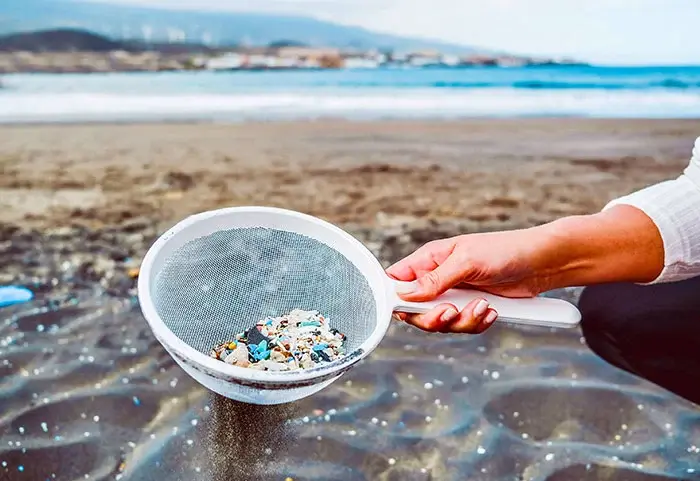Climate Feminism: The Future of the Planet Is Local and Women-Led
- Aishia Glasford

- Apr 19, 2025
- 10 min read
Updated: May 19, 2025
One of my favorite tees in high school was the “They Were Here First” T-shirt. My passion for engaging and preserving the environment had its start in Ms. Anfora’s biology class. Her fervor for biology inspired me to love it just as much. It seemed natural—along with Ms. Anfora—to start our school’s environmental club. I was also its only member. Back then caring about the environment was viewed as bohemian and niche, not yet the global crisis it is today. We pushed to Save the Whales and lobbied our Honor Roll members to start a recycling program. I loved being part of her class because she made me excited about plant cells, animal anatomy, and importantly, our role in protecting nature as a fundamental part of who we are as humans.
Like many people, I would not define myself as an environmentalist, but conscious, perhaps annoyingly so. It is exhausting to do all the things that one would need to, in order for us to mitigate the negative environmental effects of industrialization and globalization. It becomes so overwhelming that most people give up, unless there is a monetized incentive, or one that is so intimate to one’s well being that serious lifestyle changes must be made: a cancer diagnosis, diabetes, grave respiratory issues, and the list can go on.. But we seem to be reaching a point where we have no choice but to take the degradation of the environment seriously.
The impetus to write this post is that yes, Earth Day is on April 22, but also because of an article I read in the NY Times: "What Are Microplastics Doing to Our Bodies? This Lab Is Racing to Find Out," by Nina Agrawal. The idea that the plastic shopping bag was invented to help save the environment by slowing deforestation, but now is invading our body and possibly making us sick conjures multiple and contrary emotions. But plastics are just the entry point.
Consumption and pollution is part of a whole system that disproportionately impacts the historically disenfranchised: the economically marginalized, the racially and ethnically discriminated, those with disabilities and women and girls.

Plastics are not the only degraders of our environment or our climate—there is a whole ecosystem of polluting products that are putting our resources we depend on—air, soil, water–on the brink of destruction. We also know that other human actions and industrial processes harm the environment from commercial farming to carbon emissions to extractive industries to the production of phones and clothing. These processes allowed us to develop economically and technologically, but also it put our planet at great risk of not sustaining life.
The lack of sustainability has, and will, affect some sub-populations more than others, particularly those living in rural areas, who live in poverty, and women and girls. Ultimately, the losers of climate change and environmental degradation are everyone, especially when women and girls, who are at the foundation of most families and communities, suffer the most in terms of their health, livelihood and safety.
Frontline View

As a humanitarian, the impact of climate change has been an integral part of the emergency responses that I have worked in. I have witnessed firsthand the devastation that has befallen countries in the global south experiencing the impact of climate change: flooding, drought and natural disasters such as cyclones. These impacts lead to the destruction of homes, farms, and livelihoods. It also leads to various forms of gender-based violence through destruction of agricultural systems that leads to food security and triggering displacement, as people flee the devastation. Women and girls face gender-based violence in multiple forms such as sexual assault and rape as they flee the disaster, as roads and places of refuge can be unsafe. They are denied food when there is high food insecurity, with food being saved for male income earners. They face violence within the home if they are forced to take on more paid work to meet needs, which can lead to neglecting unpaid work at home. Girls may be forced to walk farther to isolated areas in search of cooking fuel and water, as resources dwindle due to floods, wildfires or pollution. In order to do so they may need to drop out of school to help their household to tend to unpaid work at home, particularly sourcing water. School desertion limits their opportunities for work in the future as they do not have needed educational requirements and/or vocational training.
The Gendered Toll of Climate Change

What we have seen playing out with climate change is not just theory or observation. Patterns of climate change are no longer confined to the global south. That is no longer the case: global north countries are now feeling the harsh consequences of climate change. The harm created by global north industrialization efforts have been felt the most in the global south. It also does not help that some of the heaviest present day polluters–China and India–are exacerbating the effects of former industrialization impacts.
However, climate change is directly impacting the global north countries more today than it has ever had in the past: wildfires and hurricanes have increased in frequency, intensity and in the case of fires, the area impacted. In the United States we are also seeing incidences of natural destruction that we have not seen in the past, such as wildfires in places like Florida. Along with wildfires, Florida has experienced an increase of almost three times, hurricanes and wildfires in the last five years.
Hurricane Ian ripped through my small city in 2022 with many residents still struggling

to recover in 2025, and on its heels, Hurricane Helene wrecked havoc in North Carolina in 2024. These disastrous natural events cost lives as well as financial loss for those impacted. The cost of living in SW Florida, including repair of hurricanes, preparation for hurricane season and the lack of affordable insurance companies, is forcing families to leave. Although there is no specific data on single female heads of households leaving, it would not be a great leap to note that many women head of households will leave, especially if they rent housing. Landlords must pass on the cost of repair and insurance to renters. Pollution, the driver to climate change, not only causes financial burdens for global north countries, but increasingly affects our health.
Studies show the direct link between environmental degradation and pollution with the incidence of breast cancer. In 2023, the National Institutes of Health found an “8% increase in breast cancer incidence for living in areas with higher [particulate matter level (PM2.5 ) ] exposure.” PM2.5 are polluting solid and liquid particles found in the air from industrial emissions, car exhausts and combustion processes ( e.g. Oil, coal).
An UChicago associate professor found through her study that airborne pollutants increase certain types of cancer, namely, breast, ovarian, blood and endometrial. For example, non-Latino Black and Asian women had increased risks of blood cancers, and Latina women had increased risks of bone, breast and endometrial cancers. Specifically, black women and their families are disproportionately impacted by environmental degradation because often facilities and their processes are located in predominantly black communities, especially if they are economically marginalized. We see “toxic emissions from sewer treatment plants, garbage dumps and landfills, hazardous waste sites, military sites, airports, and other industrial facilities." . Other industrial facilities, includes pork farming in North Carolina where the residents have felt “ the spray, the fecal waste, raining down on them.”
It is no wonder that the most vocal environmentalists have been and continue to be women and girls. Wangari Maathi was a Kenyan activist who founded the Green Belt movement, and advocated for environmental conservation and women’s rights. Today, Greta Thunberg is part of the new generation raising awareness on the impact of climate change, leading young people to become environmentalists or at least be more conscious of how climate change impacts their lives and the world they will live in during the coming years.





Women environmentalists from other parts of the world can be found here: African continent, Asia Pacific region, the Caribbean and Latin America.
Climate feminism is thus not new, but the growing negative consequences of climate change is forcing women to be the bellwether of climate change and how we must lead the charge of protecting Mother Earth.
It makes sense that the biggest economies, currently, but who also historically degraded the earth to become the largest economies, should bear the brunt of cleaning up its messes as well as taking steps to not further damage what we have left
Path Forward
The United States and other Global North countries finally began to recognize the importance of putting climate change and mitigating the effects of it on the global agenda, and consequently on national agendas. Treaties like the Paris Agreement signed by 195 countries by 2024 sets the stage. However, real progress must happen on the ground with local leadership where global measures are adopted into legislation as well into action.
Globally and Nationally

As the second biggest polluter, the U.S. government needs to maintain the strides we have made by keeping regulations in place that monitor carbon emissions from coal extraction as well as natural gas and oil fracking pollutants in water and soil. Nationally in this current period community led and national organizations, regardless if it is their mission, should see environmental preservation as a cross-cutting issue and include it in their strategic objectives and goals. Now more than ever as federal focus on climate change wanes, we must increase pressure on high level decision makers to prevent our country from moving backward.. But in order for the planet to be healthier, we must think globally, and act locally.
Local Governments
Local governments can do much to conserve natural resources and decrease the harmful production of pollutants and triggers to climate change. Even if the Federal government lowers its mandate, this does not mean at the State and community levels we lower ours. Whether you are in the U.S. or not, there is much that we can do through our local officials and community leaders:
Local government budgets must include a mandatory budget line that provides awareness on climate change and the impact of pollution in its local area. As much as my community is impacted by hurricanes, there is little public education on what we can do everyday to mitigate its effects.
The importance of recycling programs, green transportation, water conservation, and the use of eco-friendly supplies. The United States is poor at recycling: the way we conduct it, the way individuals and communities understand it. More research needs to be done on how communities are recycling. The Global South has been innovative in dealing with plastics and other polluting products, and we in the north can take a page of such innovations as making bricks out of plastic.
Local governments—supported by the private sector and philanthropic partners—can invest in research and development for renewable energy sources such as solar, wind, and green hydrogen. They can also champion circular economy models that emphasize reuse and recycling to reduce waste. Ultimately, the focus must be on enhancing sustainability practices that protect local resources and ecosystems. When adopted widely, these efforts can collectively lead to significant reductions in pollution and the overall impact of climate change.
Education
"Farm-to-school" initiatives that promote local production of food and healthy eating.
Educational programs should not be spearheaded by just an emphatic biology teacher like Ms. Anfora. By now, it should be a mandatory course in schools, along with the linkages to preserving the diversity of our communities.
Personal Habits
But the easiest and simultaneously hardest way to reduce the negative impact of environmental degradation is to reduce our consumption. It is inevitable that we will harm the environment with our actions, but the frequency and intensity can be mitigated: I subscribe to One5C, which provides easily adaptable tips for a healthier planet.
The harmful impacts of AI have been in the news lately, but we all know that it will become an integral part of our daily lives and we will need to find a way to mitigate its harmful effects. The good news is that there are steps being made to study renewable energy sources and optimizing power grids to operate AI platforms in a more environmentally sound way. At an individual level, do we need to use AI powered platforms for all our queries? No, there is a way to disable it for the Google overview function. Additionally, it can be our everyday activities that are causing the most harm: what we eat, what we clean with and what we clothe ourselves with. We can reduce our consumption of animal food products by focusing more on protein rich vegetables and grains to take incentive away from continued commercial farming and we most certainly do not have to participate in fast fashion.
It is hard. I know. I have lived in some of the most remote and low resourced areas of the world which has forced me to live in a way I haven’t been accustomed to: suffering scorching temperatures with just an evening breeze as my fan, taking bucket baths, and eating the same foods over and over again. I’ve also lived in poor, rural areas of Africa outside of my professional work—experiences that have been the most instructive in showing how climate change affects the lives of the most marginalized. They’ve also taught me that I—and all of us—can live more simply, in ways that are far more sustainable for the planet (more on that in another post).
Ms Anfora was not just a passionate biology teacher. She was a progressive thinker. She helped open my eyes to the magic of cells and systems but also the imperative to protect our shared future. That future depends on us. On how we teach, how we act, and how we remember that we do not inherit the Earth from our ancestors: we borrow it from our children.
Act Local, Think Feminist.
Climate change isn’t a distant threat—it’s already reshaping lives, especially for women and girls on the frontlines. If we want a livable future, we must center local voices, support feminist leadership, and reduce our own consumption.
✊🏽 Donate to grassroots environmental groups led by women.
🗳️ Advocate for climate justice in your local government.
🔁 Share this post with someone who thinks climate change is someone else’s problem.
It’s not. It’s yours. It’s mine. And we’ve got work to do.
#EarthDay2025#ClimateJustice #FeministLeadership #Localization #Environment #Sustainability #TiloBlu





Comments